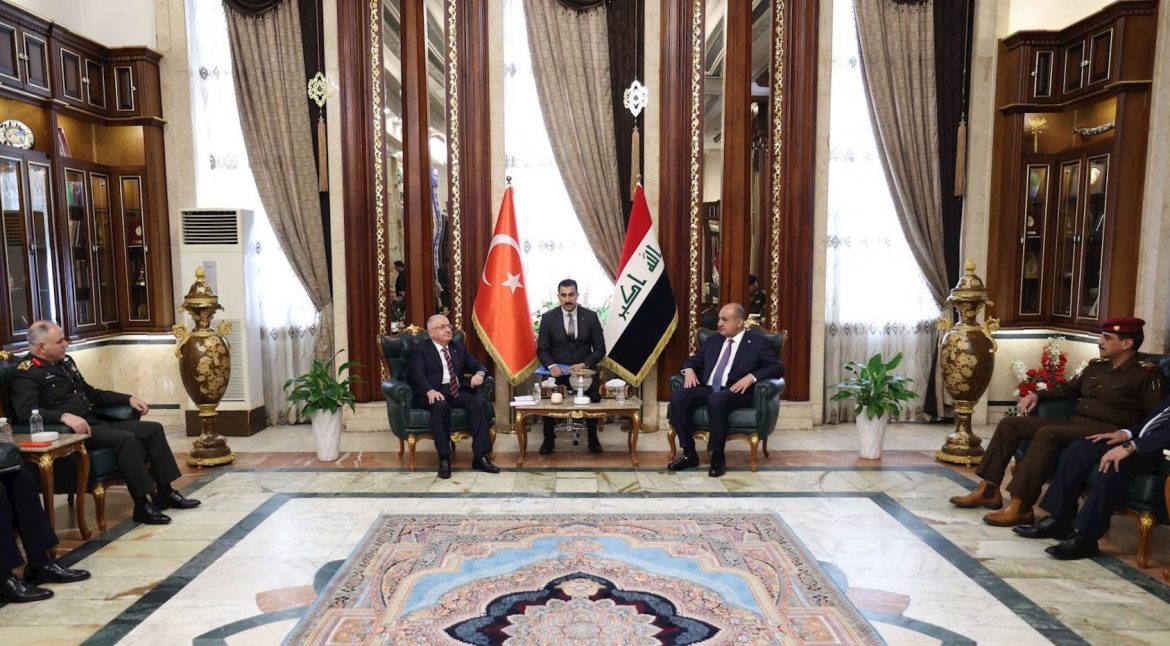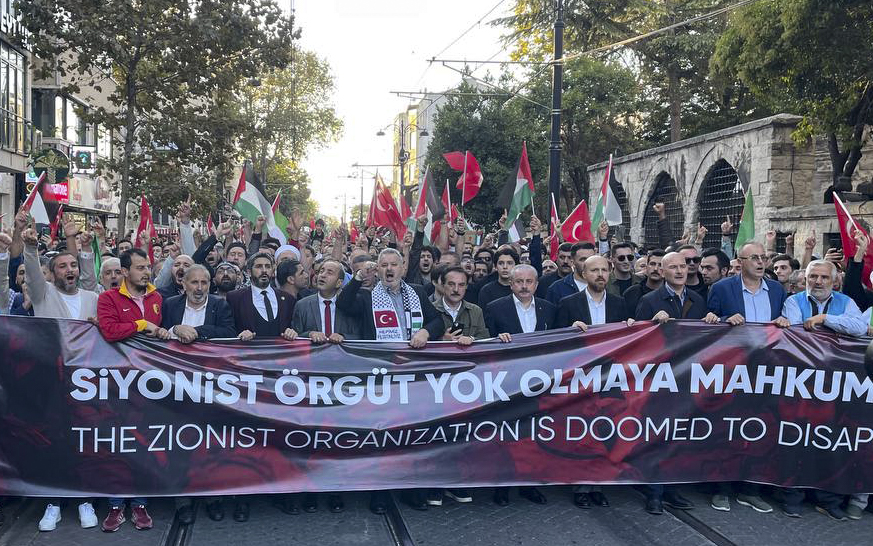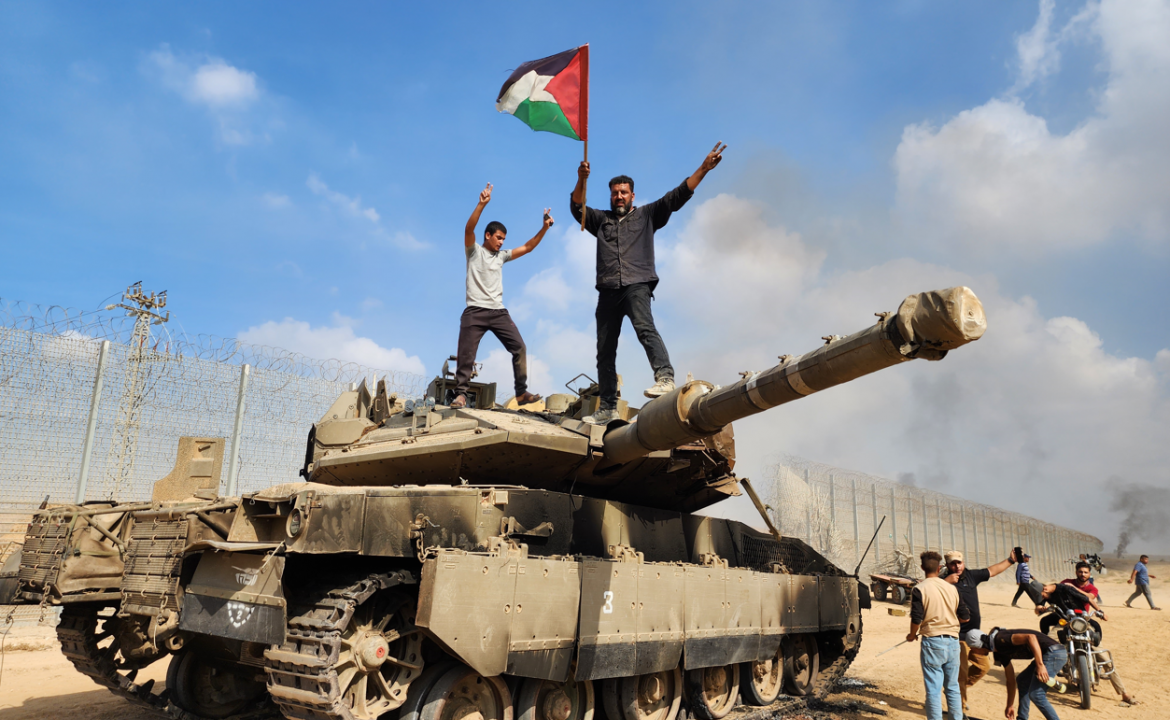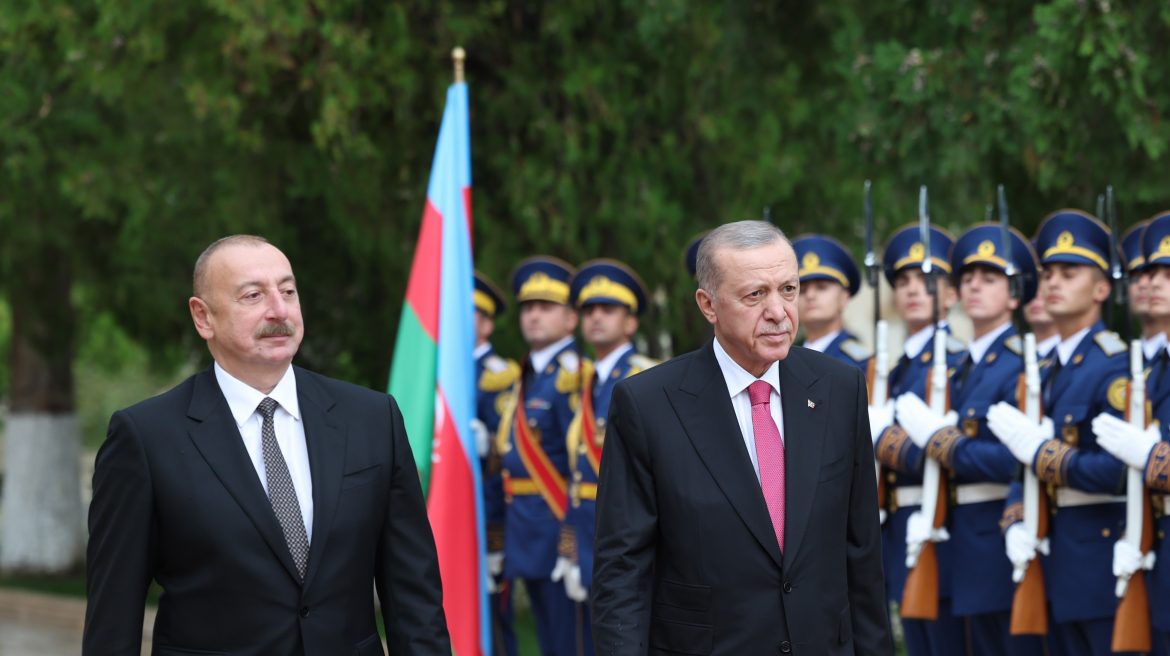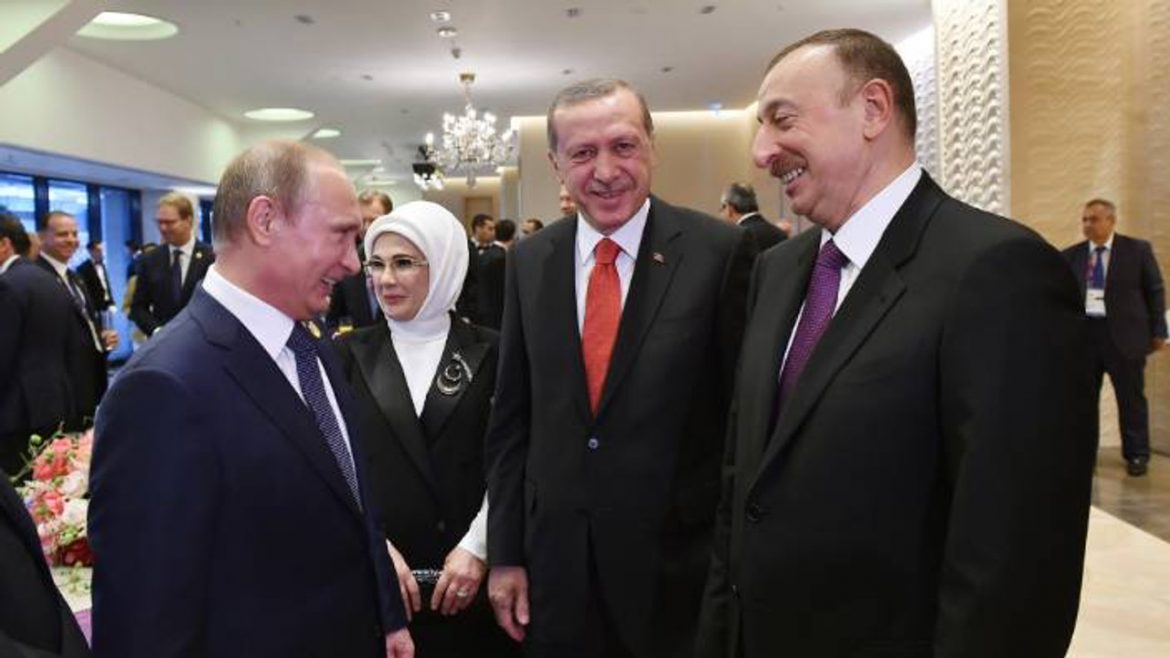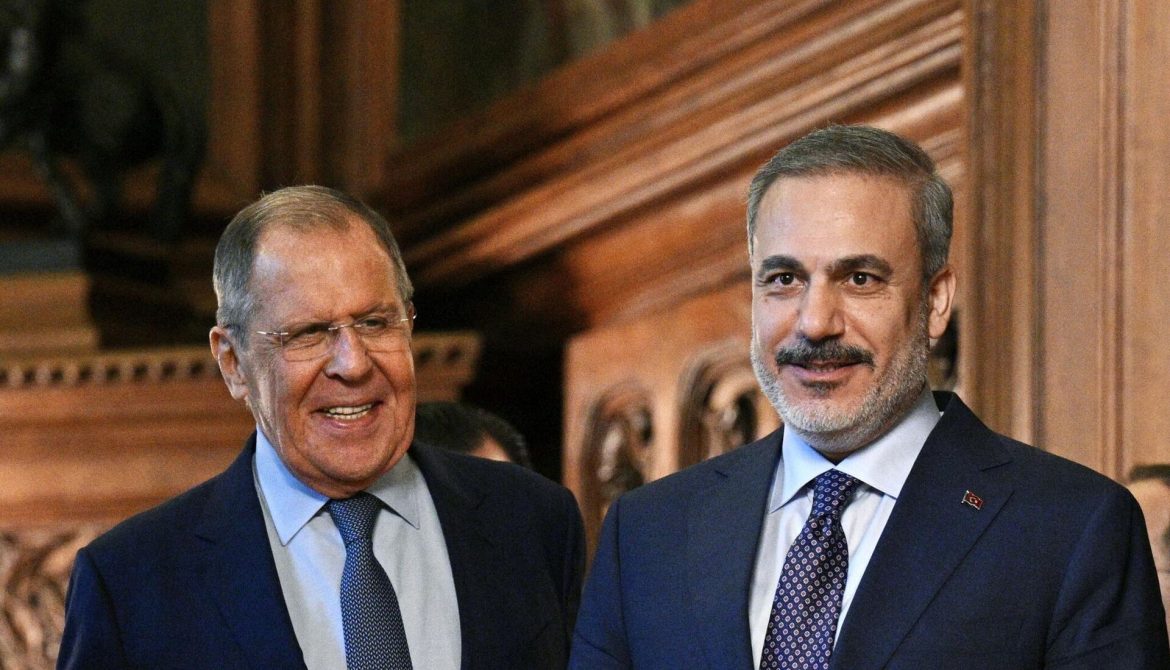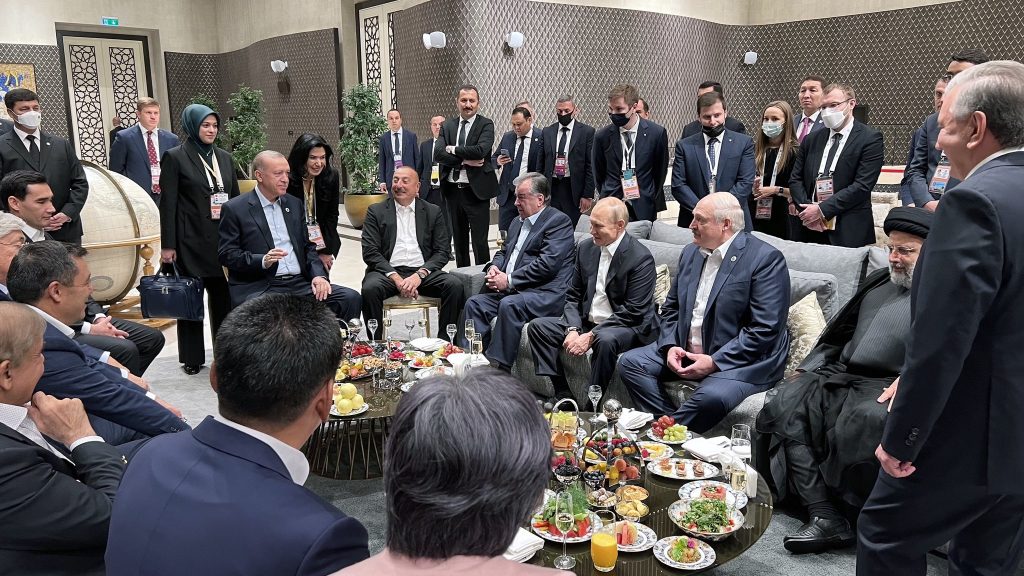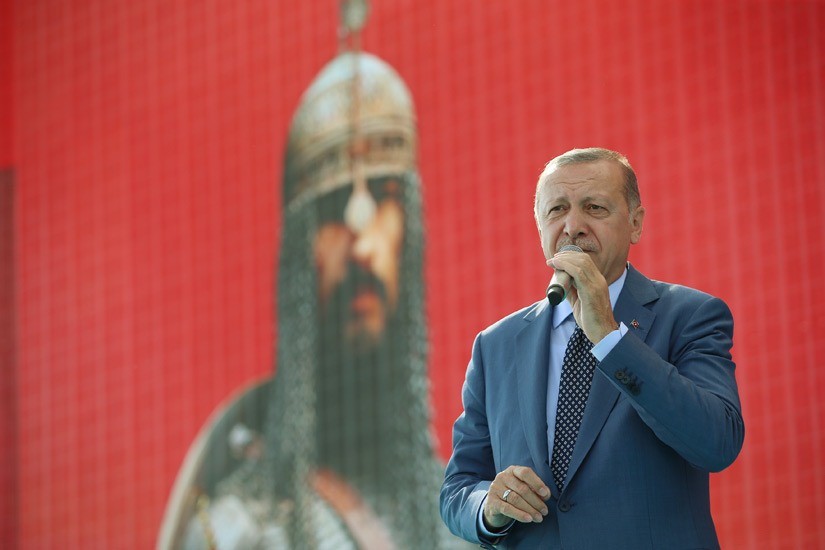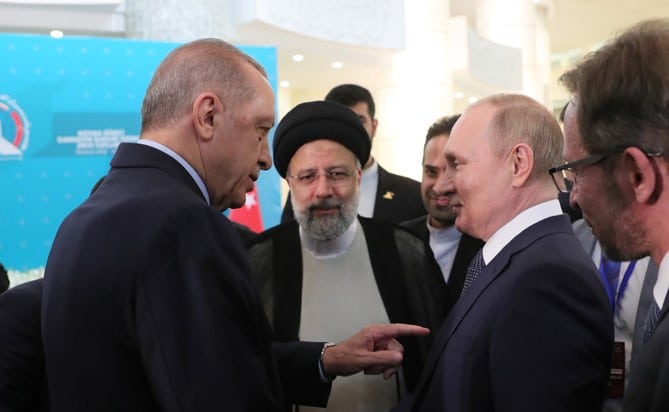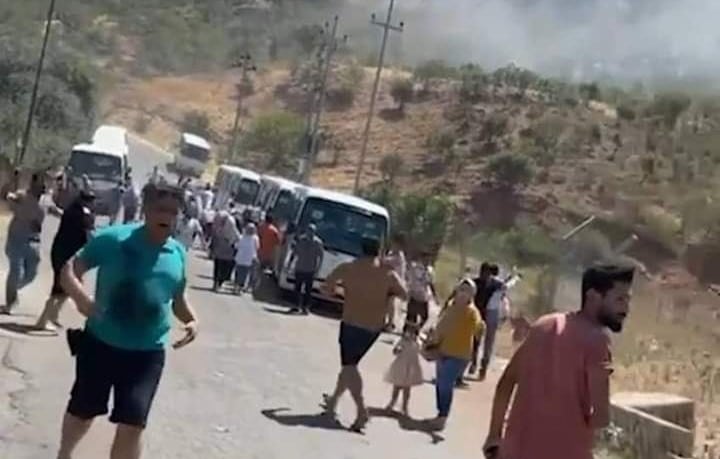February 9 might mark a beginning of a new era in relations with the U.S. and Türkiye, depending on the news about the F-16 sales expected from Congress. It would be prudent to be cautious, but the US State Department’s statement on Russian President Vladimir Putin’s expected visit to Türkiye can be considered one of
On Saturday, October 14th, marches for solidarity with Palestinian people and condemning Israel for civilian deaths took place in Istanbul (and many cities in Türkiye), as they did in many cities worldwide. It was the 7th day of the bloody clashes that began with the October 7 attack by Hamas upon Israel. Crowds of tens
The number of those killed in the Hamas attack on Israel on the morning of October 7 was more than 600 from both sides as of the late hours of October 8. In some Israeli towns, clashes between Israeli soldiers and police and Hamas militants who had infiltrated the Gaza Strip continued. The Israeli army
President Tayyip Erdoğan’s day-long visit on September 25 to the Nakhchivan Autonomous Region of Azerbaijan, bordering Türkiye, is important for changing the political and military balance in the Caucasus. Erdoğan’s visit, which was decided upon the invitation of Azerbaijani President İlham Aliyev, comes on the heels of Azerbaijan’s military operation on September 19-20, which resulted
Nikol Pashinyan’s political inexperience and opportunism continue to cost Armenia dearly, while İlham Aliyev’s dynamic alliance policy and experience continue to benefit Azerbaijan. Of course, while the Armenian leadership’s supporters, particularly the US and France, are losing ground, Iran is skidding in place, if not losing ground. Meanwhile, along with Azerbaijan, Russia, Türkiye, and Israel
Turkish Foreign Ministry on September 1 announced that Minister Hakan Fidan will pay a visit to the Islamic Republic of Iran on September 3 upon the invitation of Hossein Amir Abdollahian, Minister of Foreign Affairs of Iran. “During the visits Minister Fidan will hold high-level meetings in Tehran. The visit will render the opportunity to
Above, the photograph shows President Tayyip Erdoğan speaking while the leaders attending the Shanghai Cooperation Organization’s summit in Samarkand, Uzbekistan on Sept. 15 are listening to him. Only Chinese President Xi Jinping and Indian Prime Minister Narendra Modi are not seen in this photo. Perhaps they joined the group later. However, Russian President Vladimir Putin
Turkey’s President Recep Tayyip Erdoğan reiterated Ankara’s determination to follow a cross-border military operation into Syria, following statements from Russian, Iranian and American officials against it. “I declare to the whole world that our struggle will not end until we secure our southern borders with a 30 km deep corridor from one end to the
On July 21, when UN Secretary-General Antonio Guterres announced that he will be in Istanbul on July 22 to attend the ceremony of the grain shipment agreement between Türkiye, Russia and Ukraine, two interesting comments on Russia came from the heads of the US intelligence CIA and British intelligence MI6. According to CIA Director William
9 people have been killed and at least 22 injured so far in the attack on a tourist facility near the Iraqi city of Zakho on 20 July. Iraqi Prime Minister Mustafa al-Kazimi, who declared a day of mourning across the country, and Muqtada al-Sadr, the religious leader of the Iraqi Shiites, pointed artillery fire
- 1
- 2
